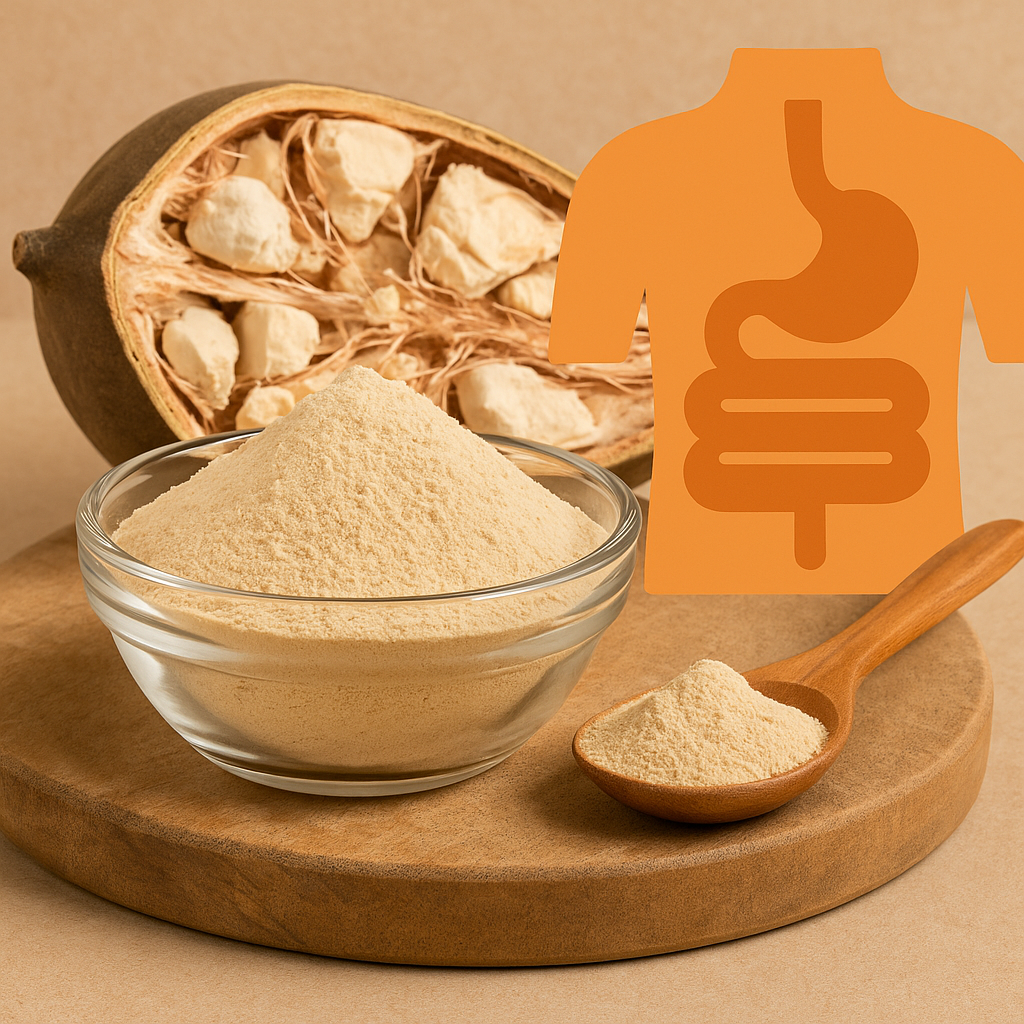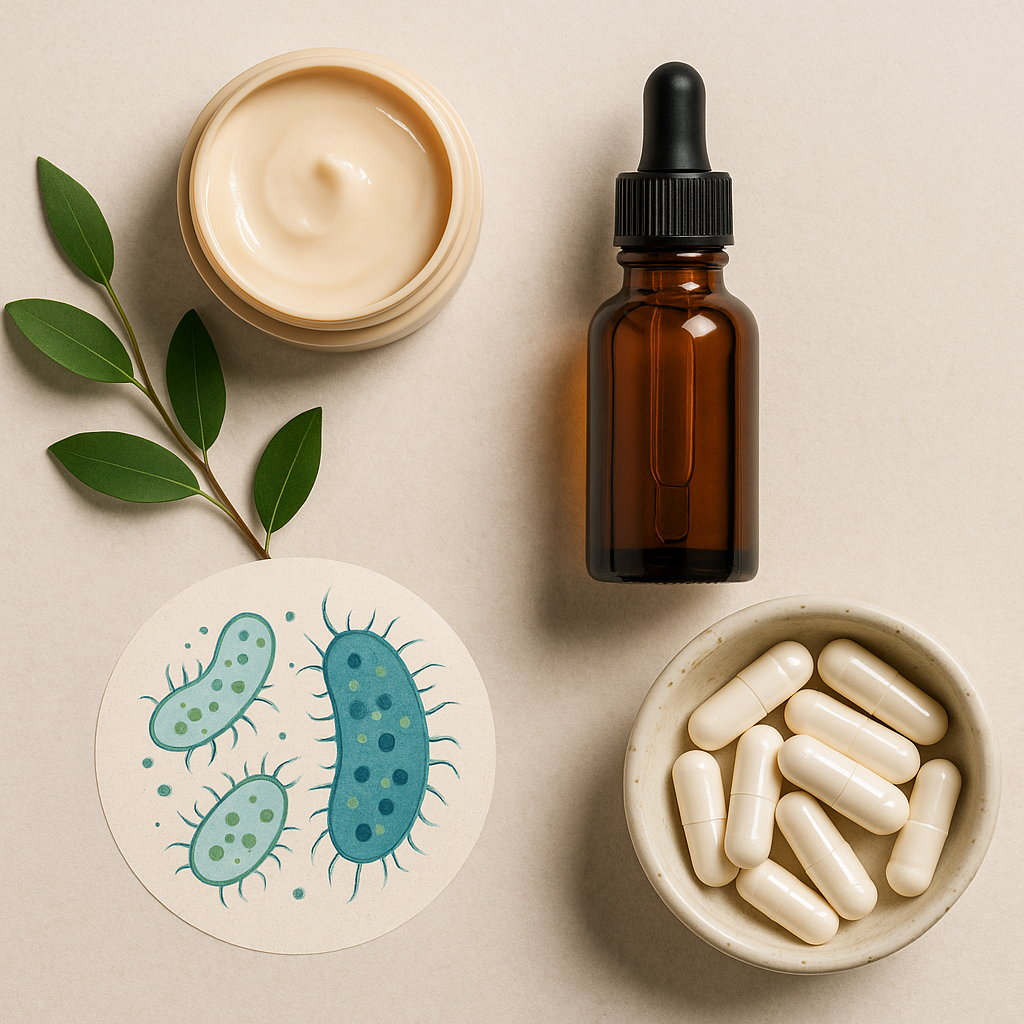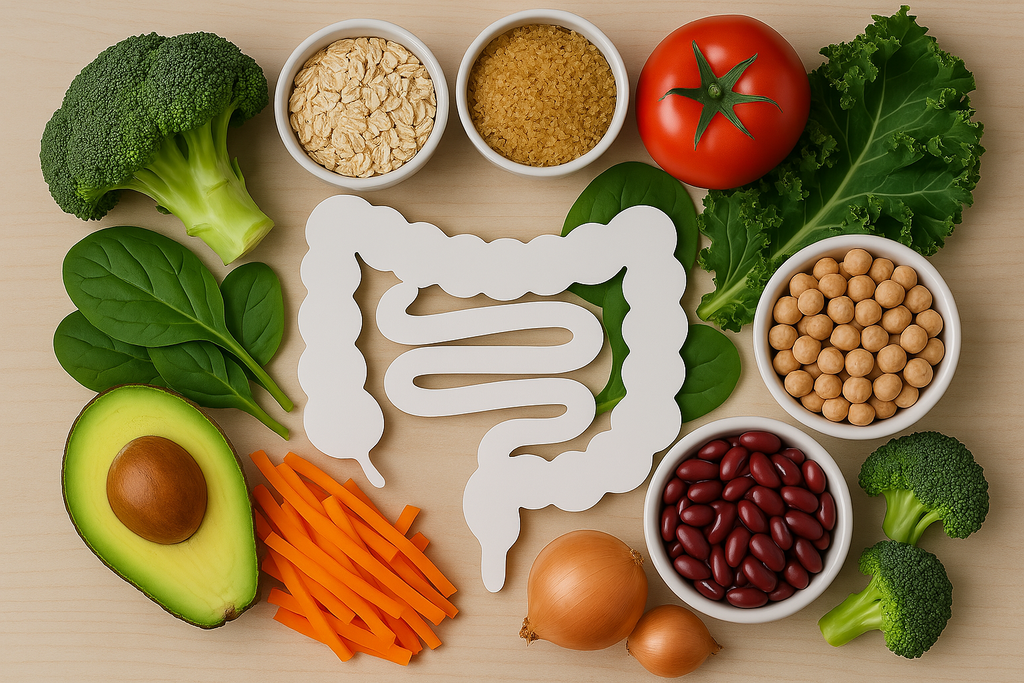News — microbiome balance
Baobab Fruit Powder: A Natural Prebiotic for Gut Health
african superfoods baobab antioxidant baobab benefits baobab digestion baobab for bloating baobab for gut health baobab immune system baobab powder baobab prebiotic baobab smoothie baobab supplement digestion superfoods gut health natural remedy gut health supplements gut microbiome support leaky gut remedy microbiome balance natural prebiotic plant-based fiber prebiotic fiber
In recent years, gut health has taken center stage in the wellness world, and for good reason. A healthy gut doesn’t just aid digestion—it plays a pivotal role in immunity, mental health, and even chronic disease prevention. Among the many superfoods praised for their digestive benefits, baobab fruit powder is quickly gaining attention as a natural, nutrient-rich prebiotic that nourishes the gut from the inside out.
Harvested from the majestic baobab tree—often referred to as the “Tree of Life”—this fruit is dried naturally inside the pod and ground into a fine powder. Rich in soluble fiber, polyphenols, and essential nutrients, baobab powder acts as a powerful prebiotic, feeding beneficial gut bacteria and promoting a balanced microbiome. Let’s dive into what makes this ancient fruit a modern gut health superstar.
Postbiotics for Skin Health: How Dead Bacteria Can Still Improve Your Complexion
acne and postbiotics anti-aging postbiotics anti-inflammatory skincare dead bacteria skincare fermented skincare gut skin axis microbiome balance microbiome skincare natural skincare postbiotic benefits postbiotic supplements postbiotics postbiotics for skin probiotic skincare rosacea relief skin barrier support skin elasticity skin hydration skincare for sensitive skin topical postbiotics
When we think of skincare and gut health, probiotics and prebiotics often steal the spotlight. But there’s a lesser-known third player in the microbiome story: postbiotics. Unlike probiotics (live bacteria) or prebiotics (their food), postbiotics are the bioactive compounds created when probiotic bacteria die—or more accurately, when they break down. And surprisingly, these “dead” bacteria can do wonders for your skin.
From reducing inflammation and supporting skin barrier function to calming breakouts and improving hydration, postbiotics represent a cutting-edge approach to holistic skincare. Far from being waste material, these microbial byproducts are rich in peptides, short-chain fatty acids, enzymes, and other molecules that continue to interact with your skin in powerful ways. Let’s explore how postbiotics support skin health, why they’re showing up in next-gen skincare, and how to incorporate them into your routine.
The Link Between Gut Microbiome and Intestinal Wellness
bloating relief digestion support digestive health dysbiosis fermented foods fiber and digestion fiber fermentation gut bacteria gut health supplements gut inflammation gut microbiome gut-brain axis healthy digestion immune system intestinal wellness leaky gut microbiome balance natural gut remedy prebiotics probiotics
Deep within your digestive tract lies a dynamic and complex community of microorganisms known as the gut microbiome. Composed of trillions of bacteria, fungi, viruses, and other microbes, this internal ecosystem plays a vital role in your overall health—particularly your intestinal wellness. Far from being passive passengers, these tiny organisms actively influence digestion, immunity, inflammation, and even mood regulation.
Modern science has shed light on just how intertwined gut microbes are with our gastrointestinal health. Disruptions in this microbial balance, known as dysbiosis, can lead to bloating, constipation, diarrhea, irritable bowel syndrome (IBS), and inflammatory bowel disease (IBD). In this article, we’ll explore the intimate connection between the gut microbiome and intestinal wellness, how to recognize imbalances, and actionable strategies to nourish your gut for long-term digestive harmony.



